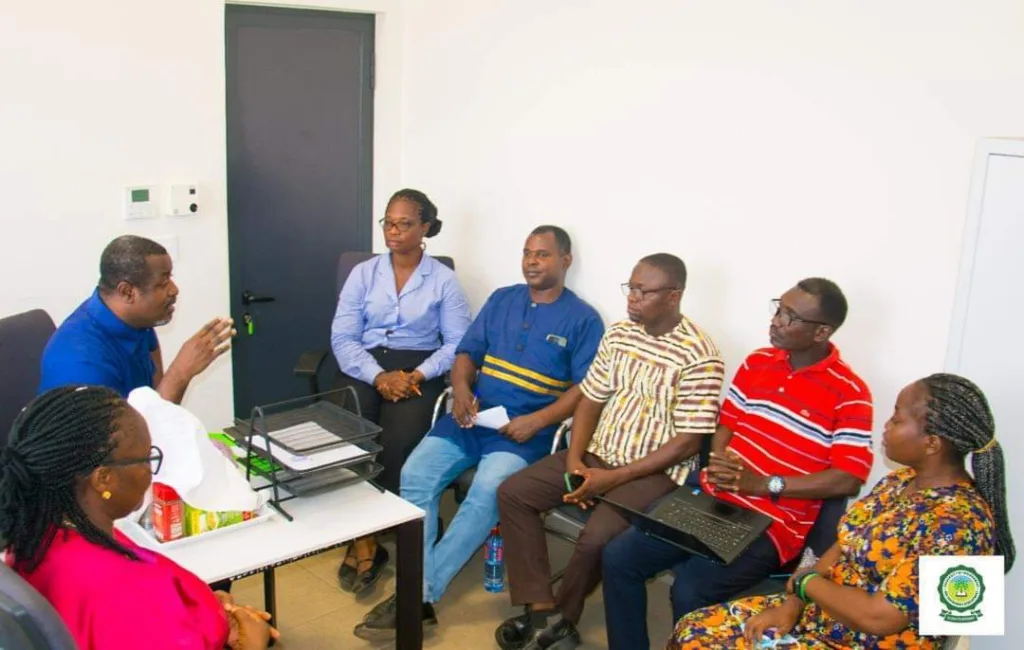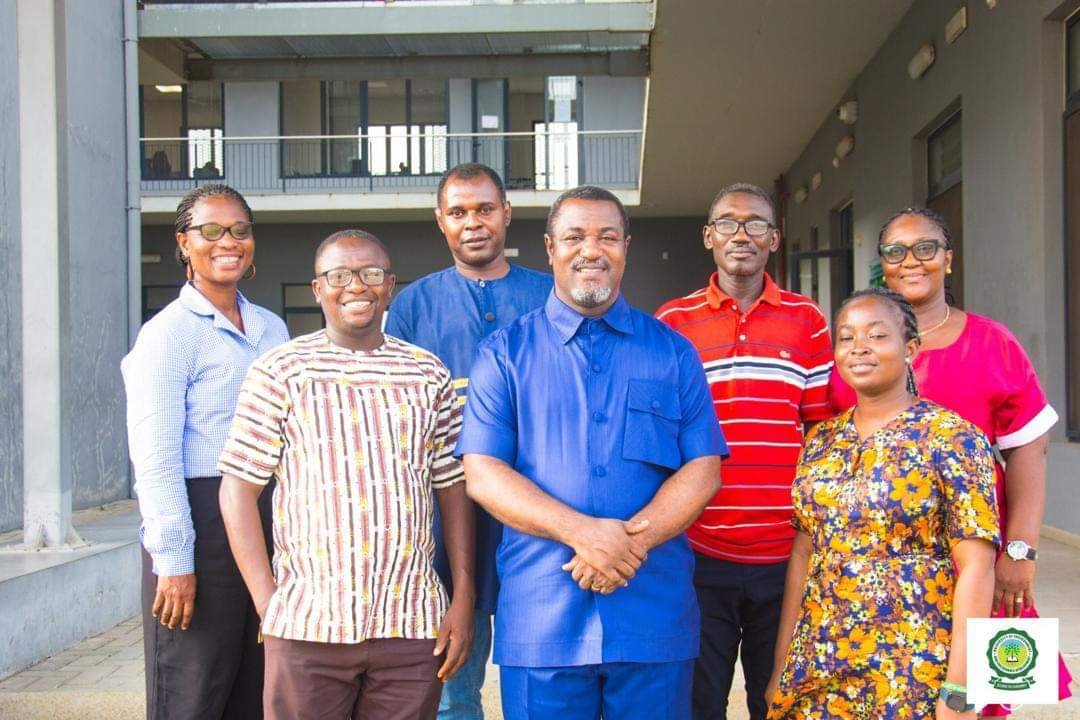A team of five lecturers from the University of Environment and Sustainable Development (UESD), School of Sustainable Development (SSD), along with an educational counselor from Mount Mary College of Education, Somanya, has been awarded five hundred thousand cedis (Ghc500,000) grant by the Ministry of Environment, Science, Technology and Innovation (MESTI) to champion financial inclusivity among women.
The grant will propel an 18-month project geared towards strengthening financial inclusivity for women operating within the informal sector.
Dubbed “Enhancing Financial Inclusivity for Women in the Informal Sector Through Access to Financial Technology Systems: The Case of the Oti, Western North, and Upper West Region,” the initiative targets communities in these regions of Ghana.
Headed by Principal investigator Dr. Kwame B. Bour, a lecturer in the Department of Built Environment, and Co-Principal Investigator Dr. Kwaku Adu, a lecturer in the Department of Applied Economics, the project aims to empower women by granting them access to financial technology systems.

Through collaborative efforts between UESD and Mount Mary College of Education, Somanya ,the project will serve as hope for marginalized women, providing them with opportunities to engage with modern financial tools and systems to create lasting impacts on the economic landscape of these regions.
According to the Global Findex Database 2021, 63 percent of women in Ghana have formal financial accounts, indicating progress in increasing women’s access to financial institutions.
However, the gender gap in Ghana has significantly widened in the last five years, from 8 to 11 percent.
Reducing this 11 percent account ownership gap between men and women syncs with the government’s financial inclusion goals to mitigate the economic vulnerability and income inequality.
As part of the strategy, the government of Ghana has developed a National Financial Inclusion and Development Strategy (NFIDS) to address fundamental barriers hindering the underserved population from accessing financial products and services.
It provides a roadmap of reforms and innovations in the financial ecosystem to tackle financial exclusion and support the broader development of the financial sector.
The strategy’s pillars include Financial Stability; Access, Quality, and Usage of Financial Services; Financial Infrastructure; Financial Consumer Protection; and Financial Literacy and Capacity.
As Ghana joins the rest of the world to mark International Women’s Day
on the theme “investing in women: Accelerate progress” , the Enhancing Financial Inclusivity for Women in the Informal Sector Through Access to Financial Technology Systems project, ultimately aligns with this global theme and the sustainable development goal five which calls for gender equality.
Source: Ghana/Starrfm.com.gh/103.5FM/Kojo Ansah




